To enhance students' international perspectives and practical abilities, and to advance the internationalization of talent cultivation in the Department of Economics, a 12-day international business training program was organized in Milan, Italy, from January 15 to January 26. This initiative was based on the development plan for the key discipline of "Applied Economics" and the construction plan for the first-class major of "International Economics and Trade," along with the talent cultivation scheme. A total of 46 selected students majoring in International Economics and Trade from the Department of Economics at Shenzhen MSU-BIT University participated in this program.
The visit was jointly hosted by the Department of Economics at Shenzhen MSU-BIT University and the School of Management at Politecnico di Milano. The theme of the training program was "The Path to Italian Success and Sino-Italian Bilateral Cooperation," with courses provided by the Graduate School of Management at Politecnico di Milano. The itinerary was meticulously planned, offering a rich and diverse range of activities, including academic lectures, corporate visits, and project practices. This program served as a bridge for students to deeply experience the academic and commercial allure of Italy.
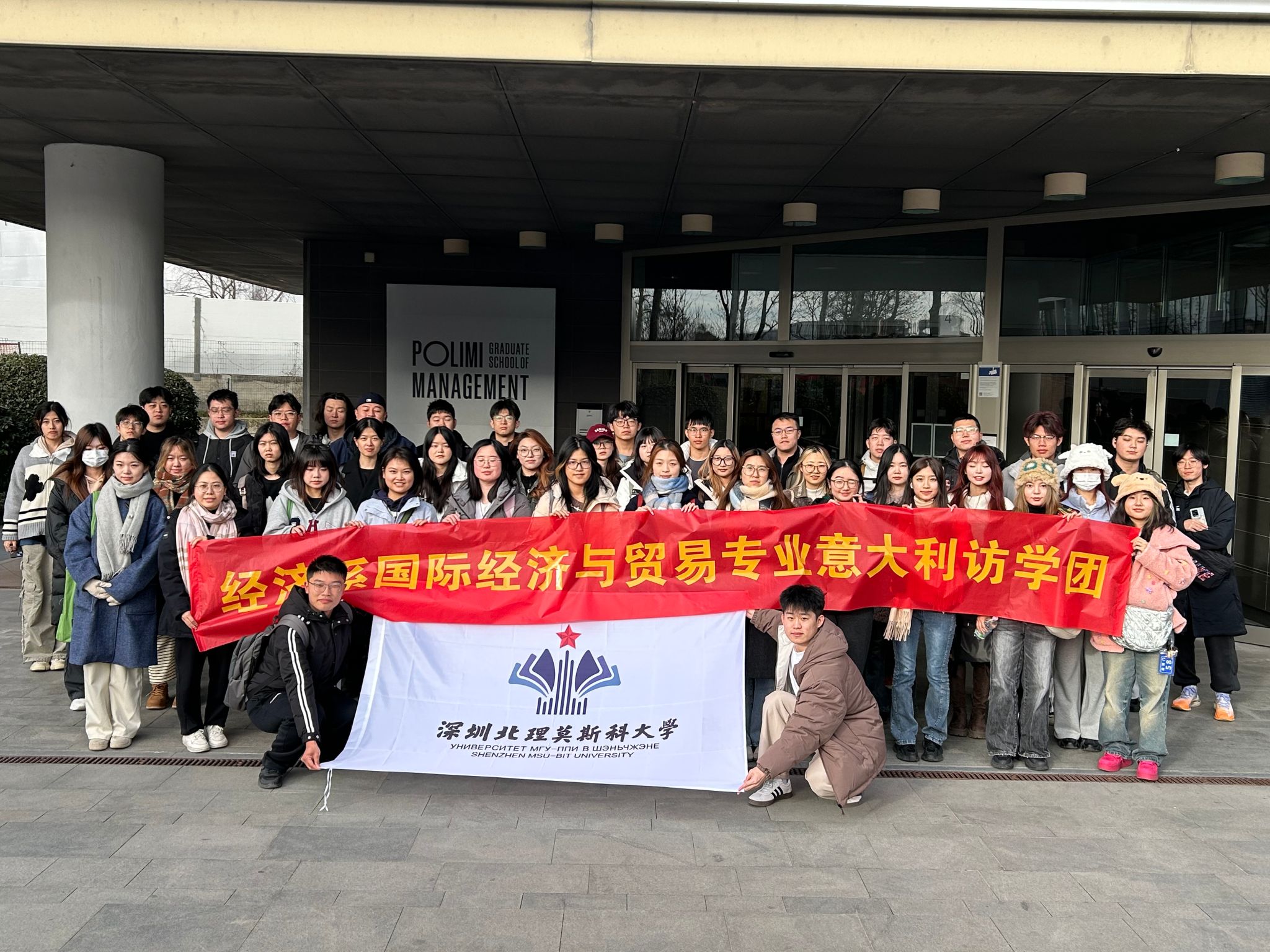
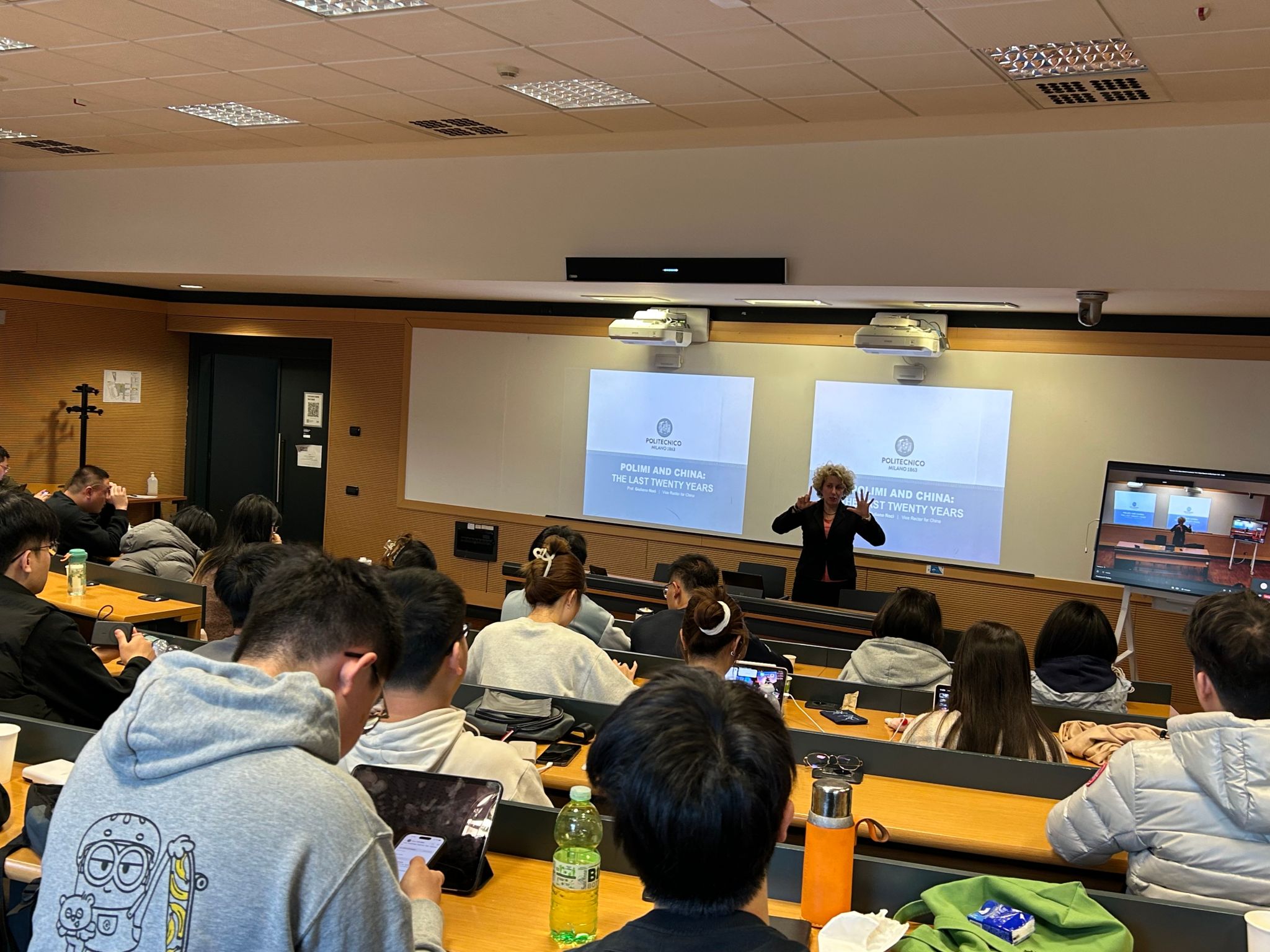
During the two-week study visit, a series of high-quality lectures served as a treasure trove of knowledge for the students. In the first week, Professor Gloria Peggiani's lecture on "The Italian Way" acted like a key, unlocking the door to the exploration of Italy's unique culture and social landscape. Through vivid case studies and insightful explanations, Professor Gloria Peggiani transported the students into the historical and contemporary fabric of Italian society, allowing them to deeply appreciate the country's distinctive charm.
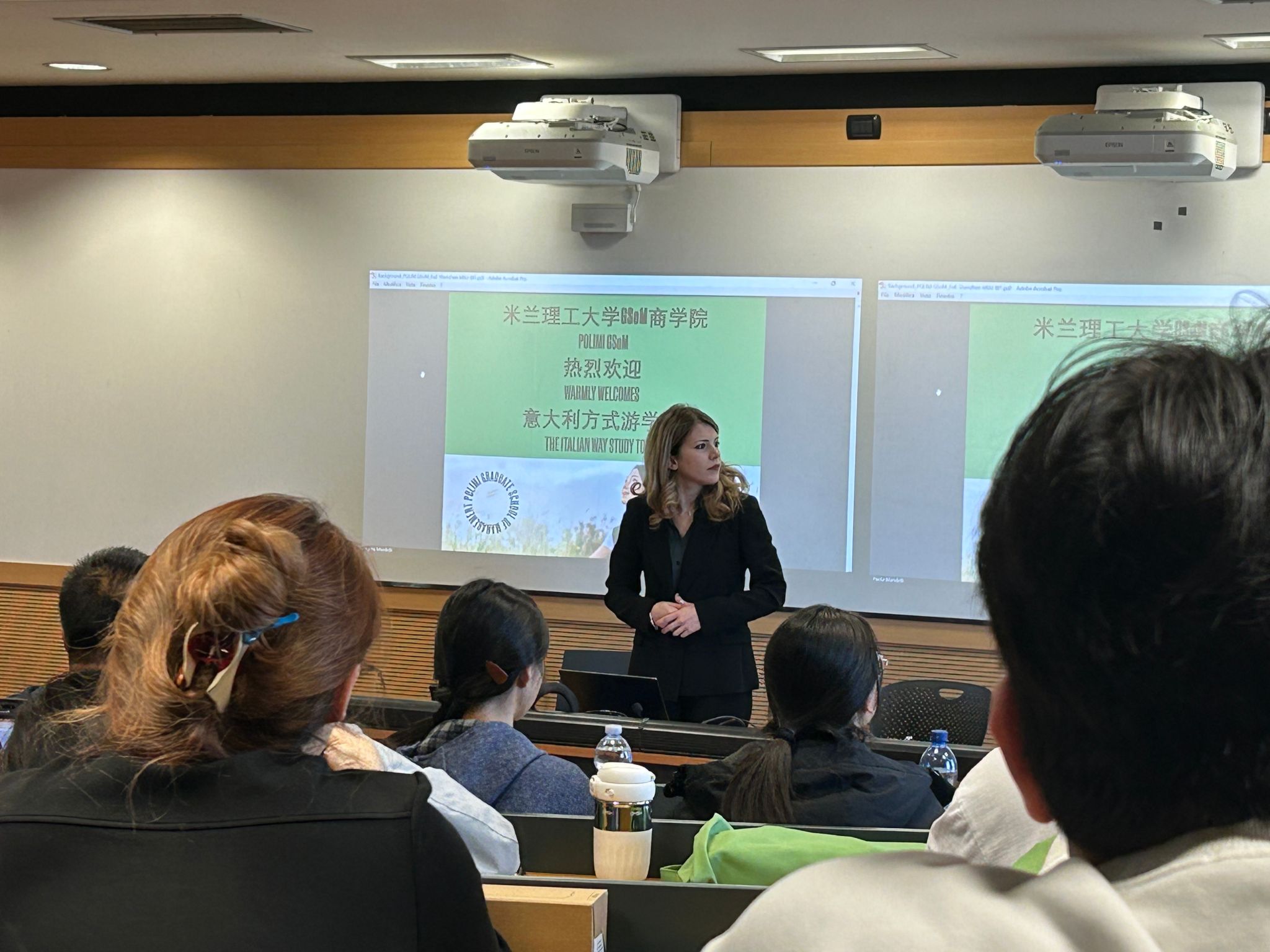
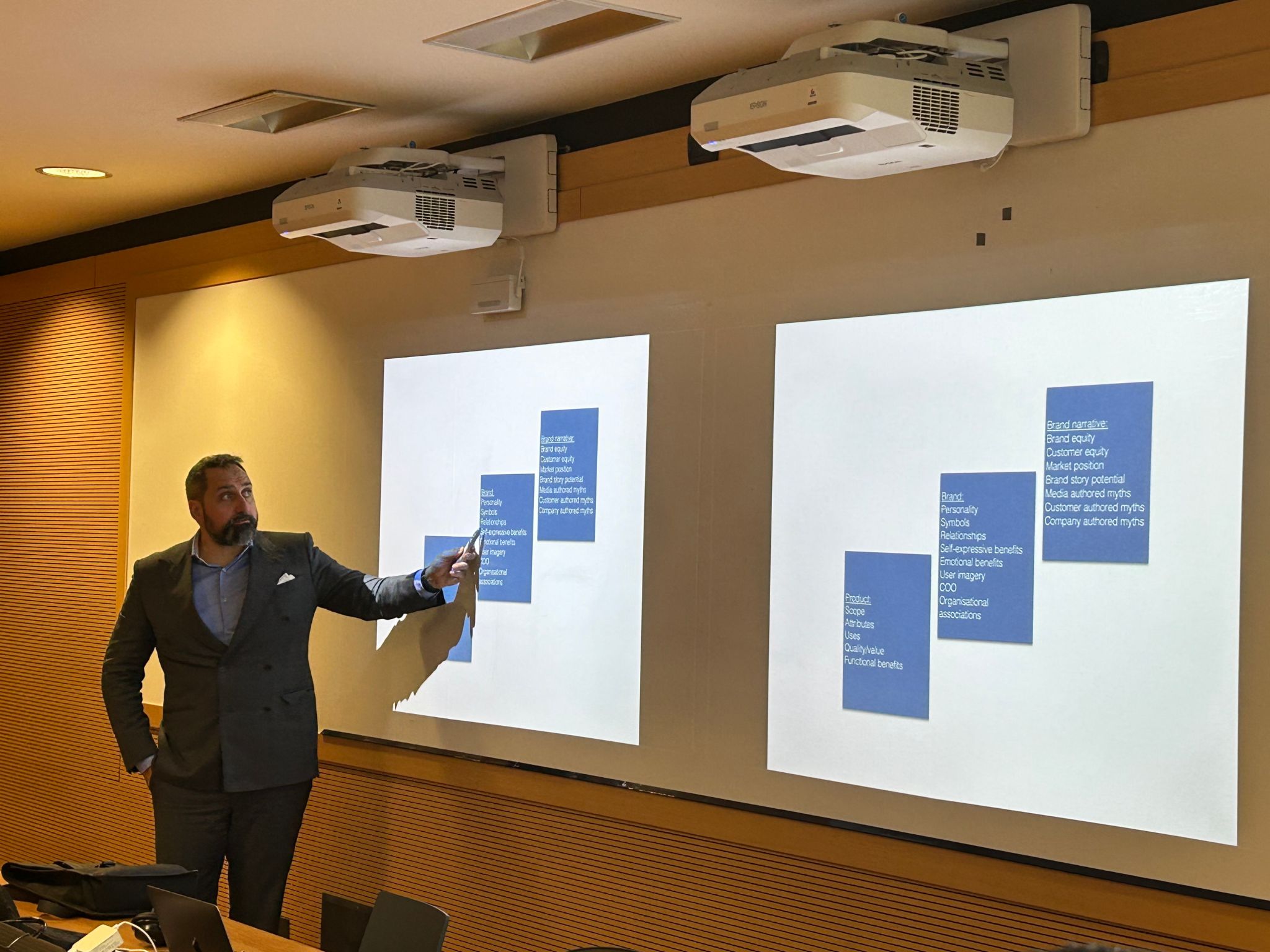

Professor Diletta Pegoraro delivered a lecture titled "Overview of Sino-Italian Bilateral Investments," which focused on the investment landscape between China and Italy. From a macroeconomic perspective, the lecture provided an in-depth analysis, supported by detailed data and real-world case studies, offering students a clear picture of the current state, opportunities, and challenges in economic cooperation between the two countries. This significantly broadened the students' understanding of international economic collaboration.
In a particularly unique session, Professor Emilio Faroldi, alongside Francesco Gianello, the facilities management director of the San Siro Stadium, conducted a lecture on the "Football Industry in Italy." This lecture not only explored the theoretical aspects of the development and operational models of Italy's football industry but also leveraged Francesco Gianello's extensive practical experience to share behind-the-scenes stories and the challenges and solutions encountered in actual management. This provided students with a more comprehensive and profound understanding of the thriving football industry in Italy.
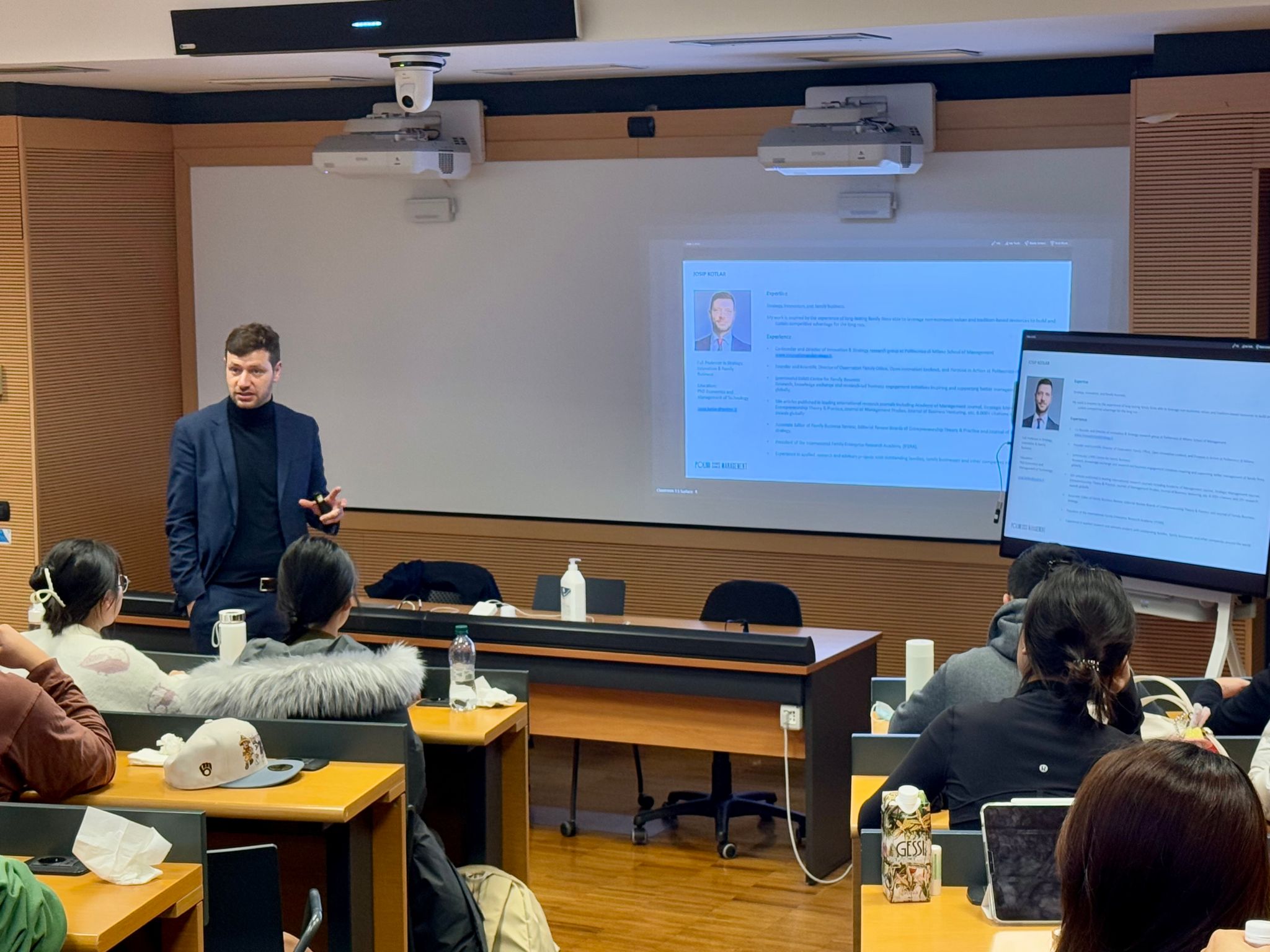
In the second week, the lectures delved further into cutting-edge professional fields. Professor Lucio Lamberti's lecture, titled "Territorial Branding & Industrial Districts: Turning the Origin into an Advantage," provided an in-depth exploration of the strong connection between regional branding and the development of industrial districts. Through the analysis of numerous successful industrial districts in Italy, students learned how to harness local characteristics and transform regional strengths into industrial competitiveness. This offered valuable insights for their future research and practice in related fields.
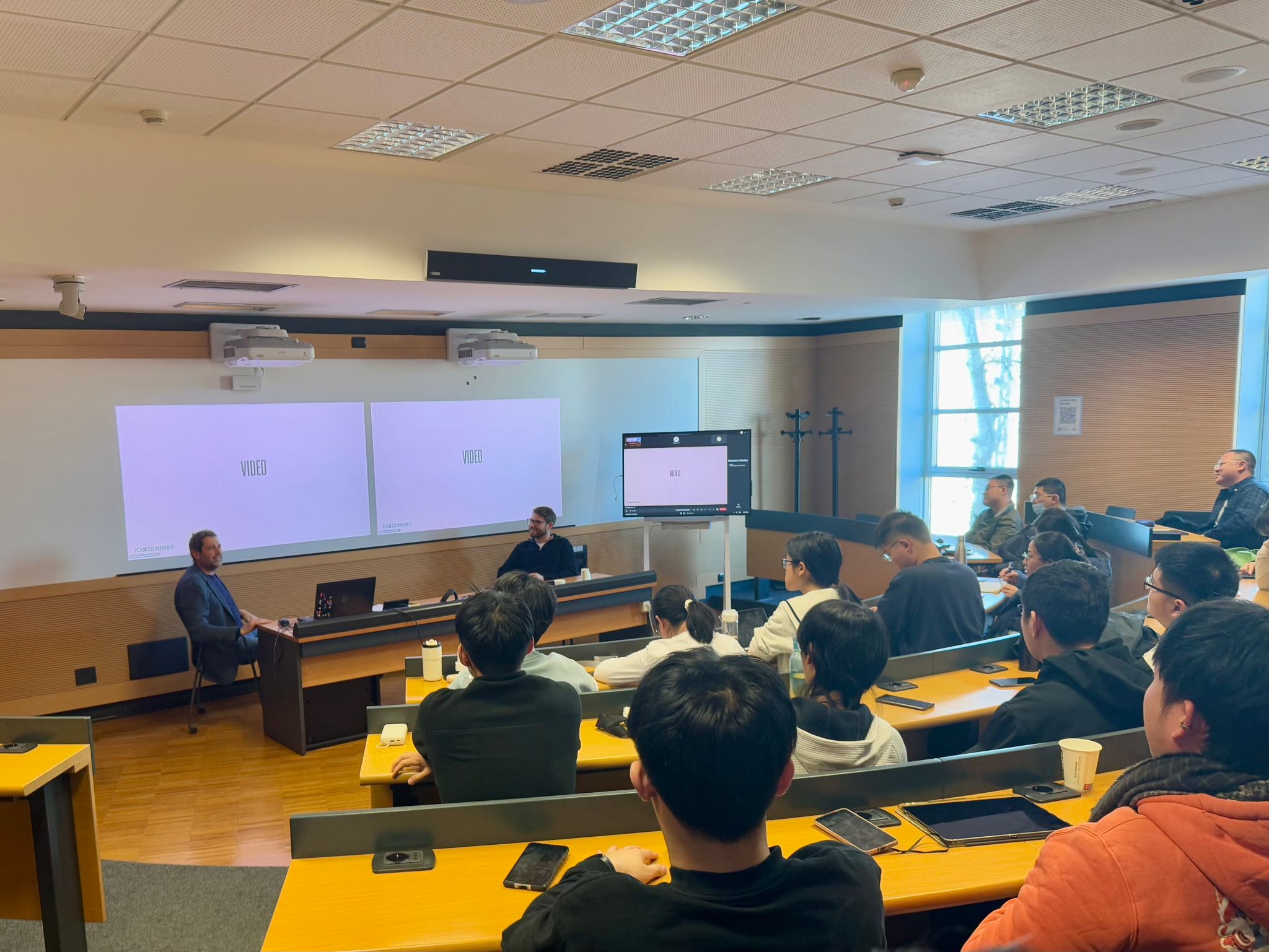
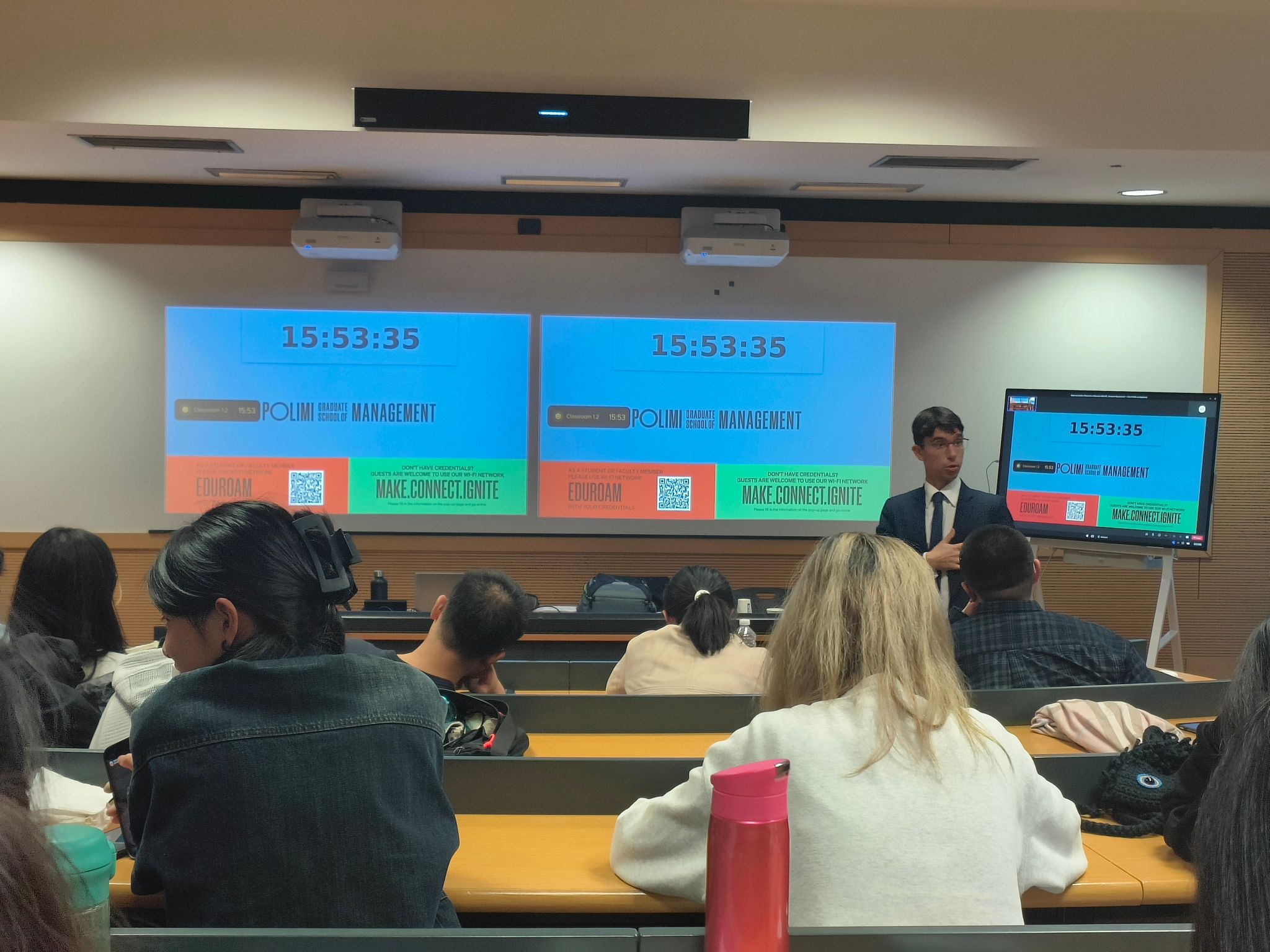
Professor Marco Mandolfo's lecture on "Consumer Neuroscience" opened a door to an emerging interdisciplinary field for the students. Coupled with a hands-on trial session of the facilities at the Phil Lab, students experienced firsthand the innovative applications of neuroscience in the consumer domain, gaining a profound understanding of how cutting-edge academic research significantly drives business practices.
Additionally, Professor Franco Quillico's insights on "Italian Trends in the Finance Domain" and Professor Josip Kotlar's analysis of "Italian Family Business Models" showcased the unique charm of two critical components of Italy's economic system. From the evolving trends in the financial sector to the distinctive operational models of family businesses, these lectures provided students with a more nuanced and detailed understanding of Italy's economic structure.
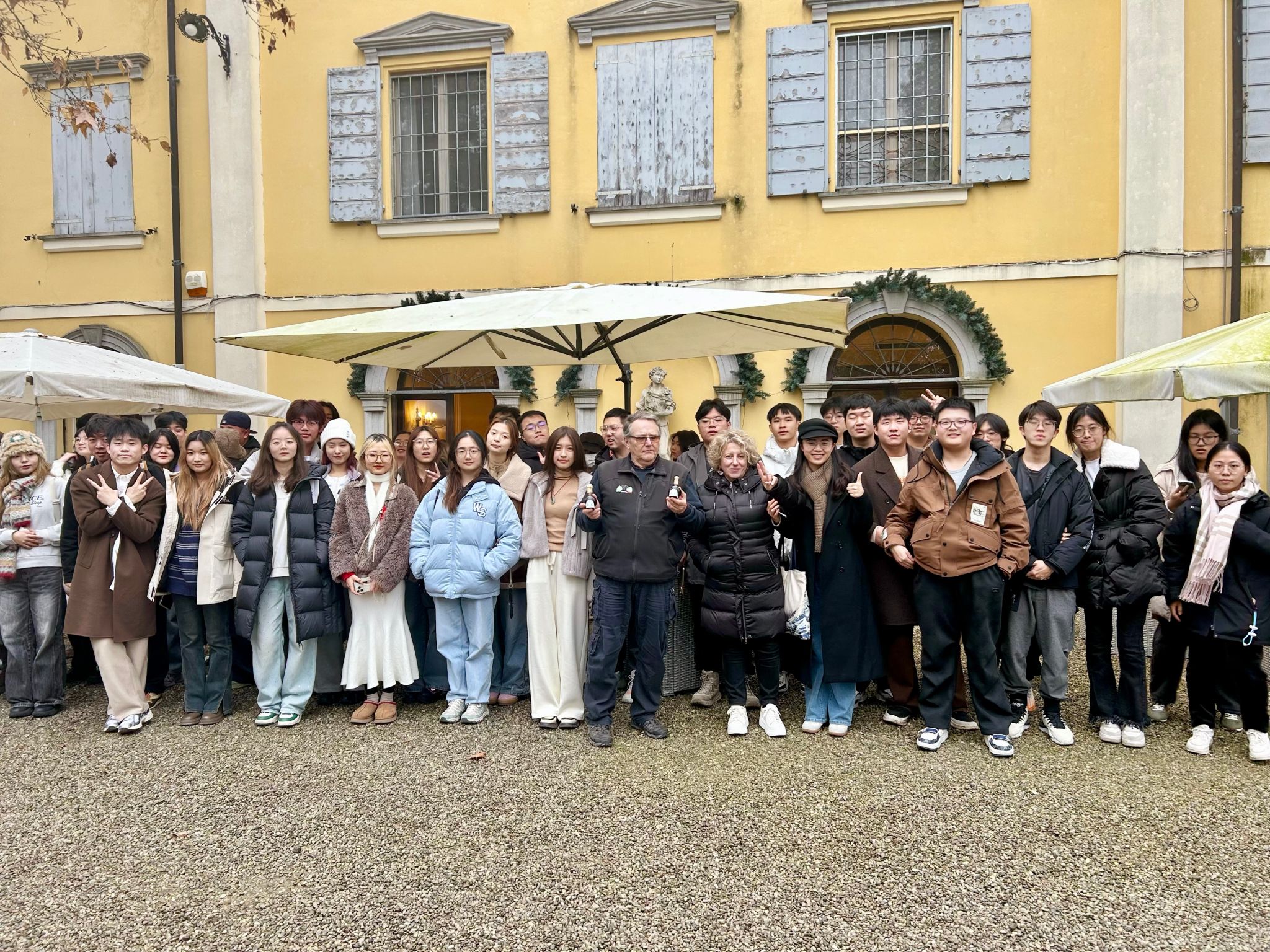
In addition to the captivating academic lectures, on-site visits provided students with invaluable hands-on learning opportunities. Students visited renowned companies such as Gessi, Dallara, and Pagani Automotive, where they delved into production lines, observed advanced manufacturing equipment, and witnessed meticulous production processes. These experiences allowed them to appreciate the excellence of Italian manufacturing in both craftsmanship and management philosophy.
At the Acetaia Gambigliani Zoccoli vinegar factory, the rich aroma of vinegar filling the air seemed to narrate the long history of Italy's traditional brewing techniques. Students not only sampled delicious vinegar products but also observed the intricate brewing process from raw materials to finished products, gaining a deep appreciation for the preservation of traditional craftsmanship in modern business.
Campus tours and visits to specific locations also enriched the students' experience. Strolling through the Bovisa campus, they immersed themselves in a strong academic atmosphere. A visit to the San Siro Stadium allowed them to witness the passion and fervor of Italian football. Exploring the wind tunnel at Politecnico di Milano unveiled the mysteries of technology and engineering. These comprehensive experiences provided students with a more explicit understanding of Italy's academic and sports culture.
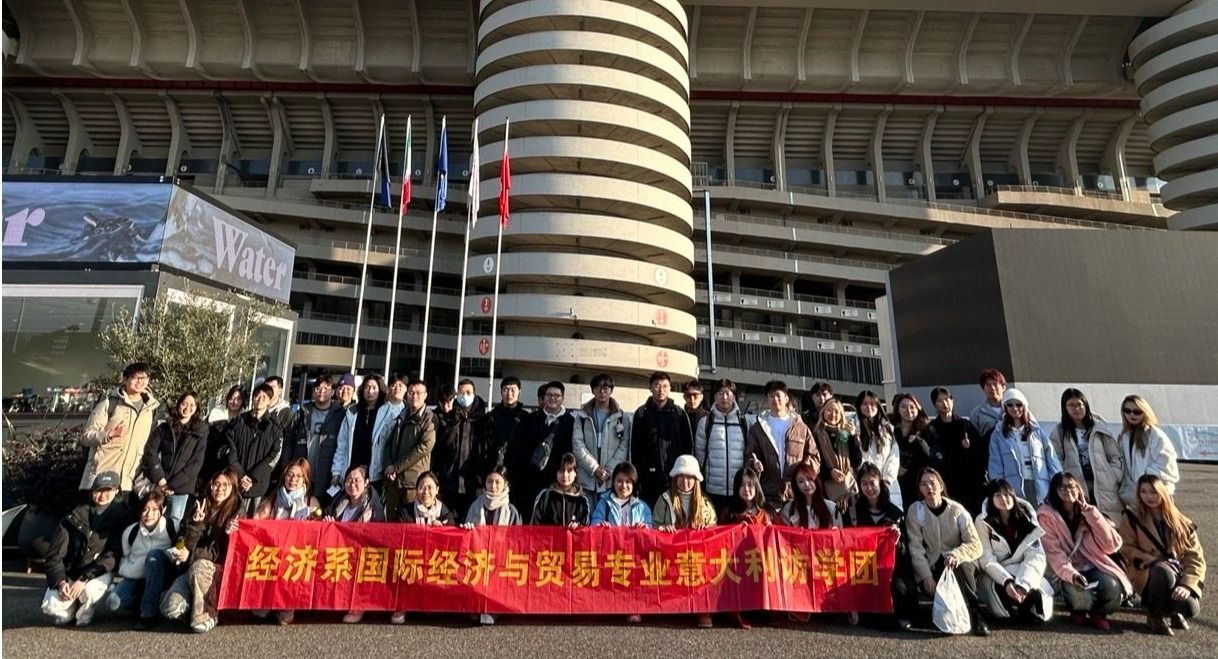
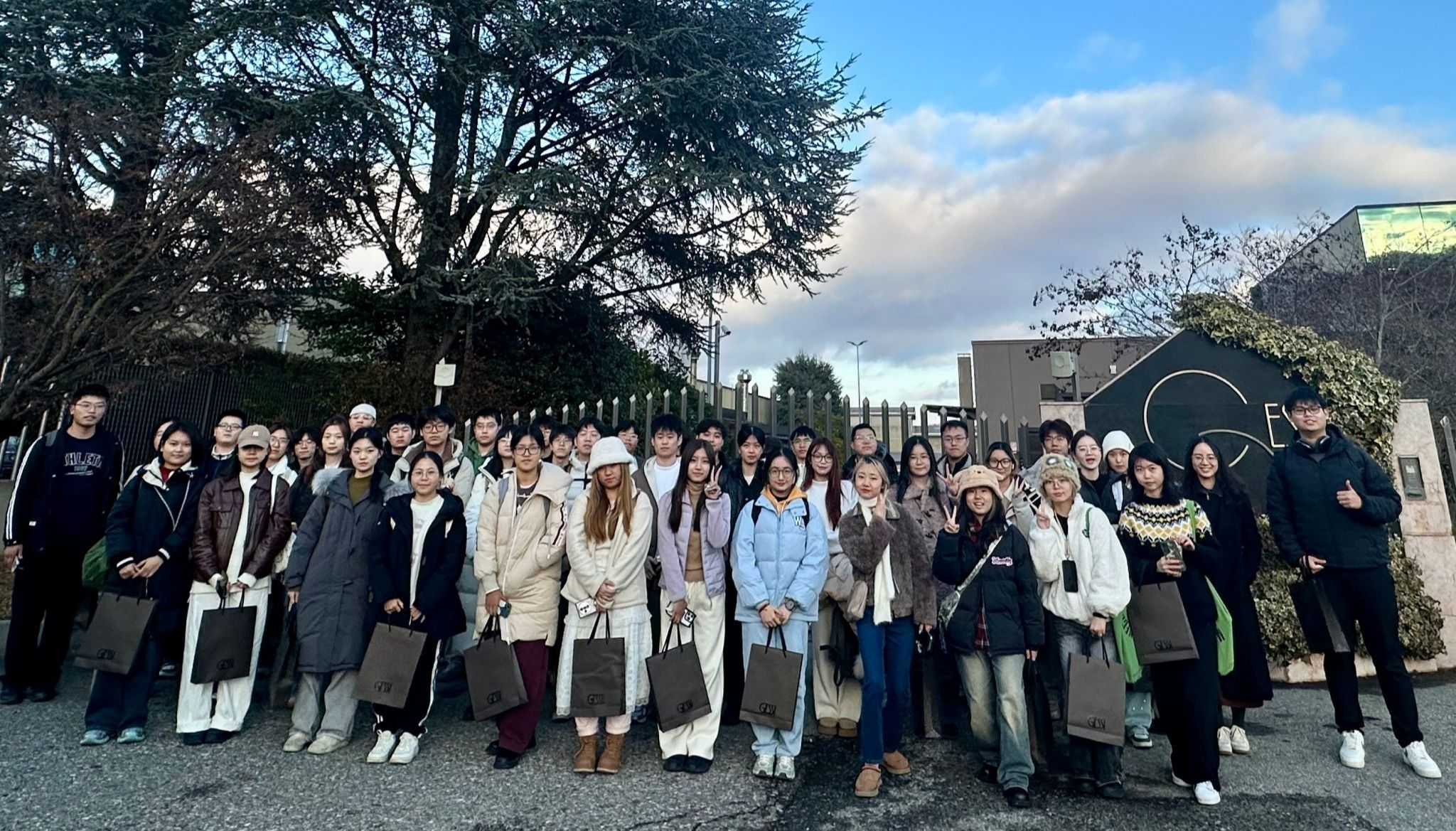
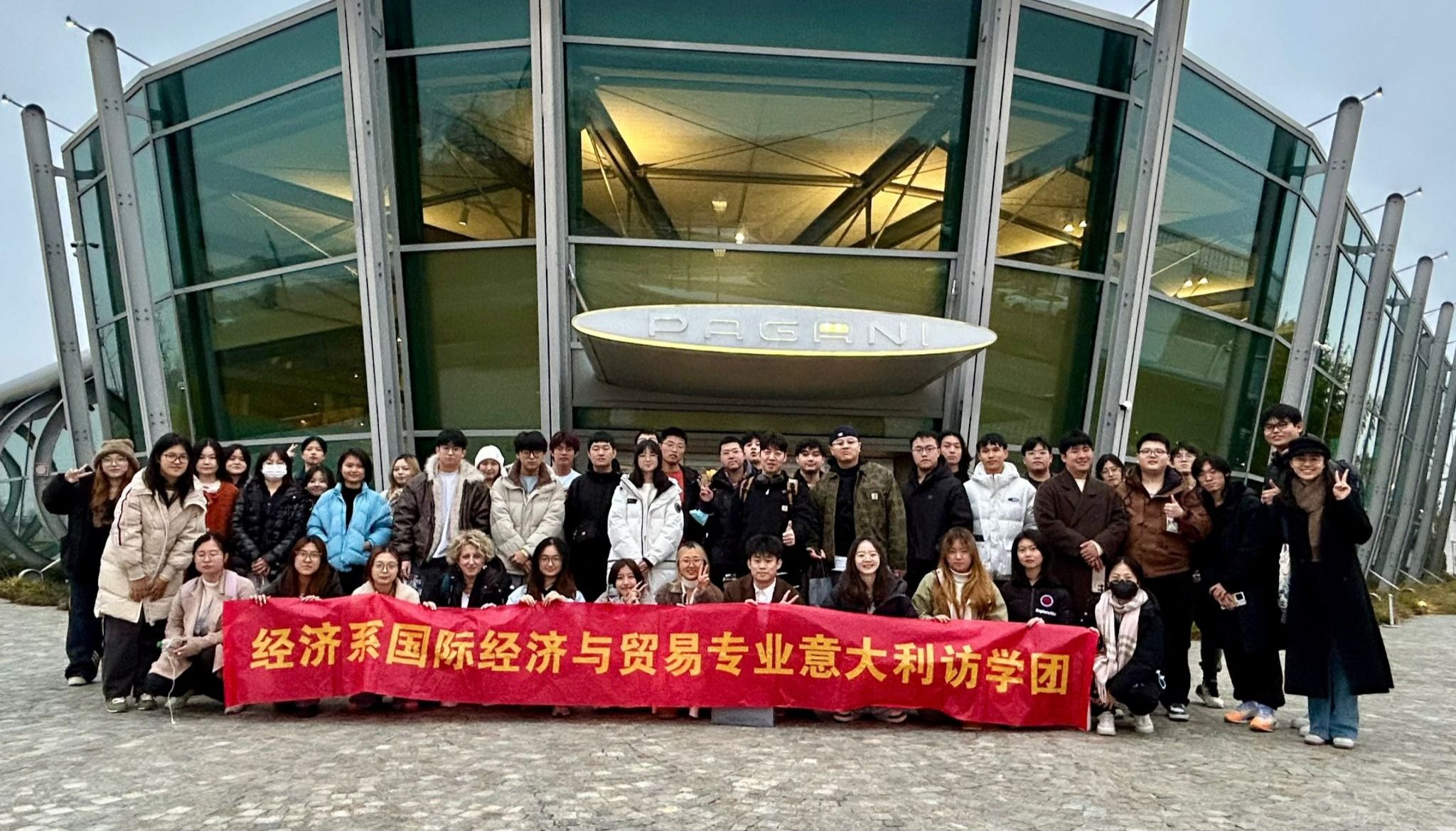
In the final phase of the study visit, project practice became a crucial platform for students to showcase their learning outcomes. Under the careful guidance of Professor Giulia Pontoglio, students actively engaged in hands-on activities, applying the theoretical knowledge they had acquired to practical operations, thereby continuously enhancing their professional skills and teamwork abilities. After days of hard work, the students demonstrated their talents in the final project presentations, delivering impressive reports that showcased their research findings to both professors and peers.
During the closing ceremony, students reflected on the memorable moments of their study visit, sharing their acheivement and growth, and bringing this extraordinary academic journey to a conclusion.
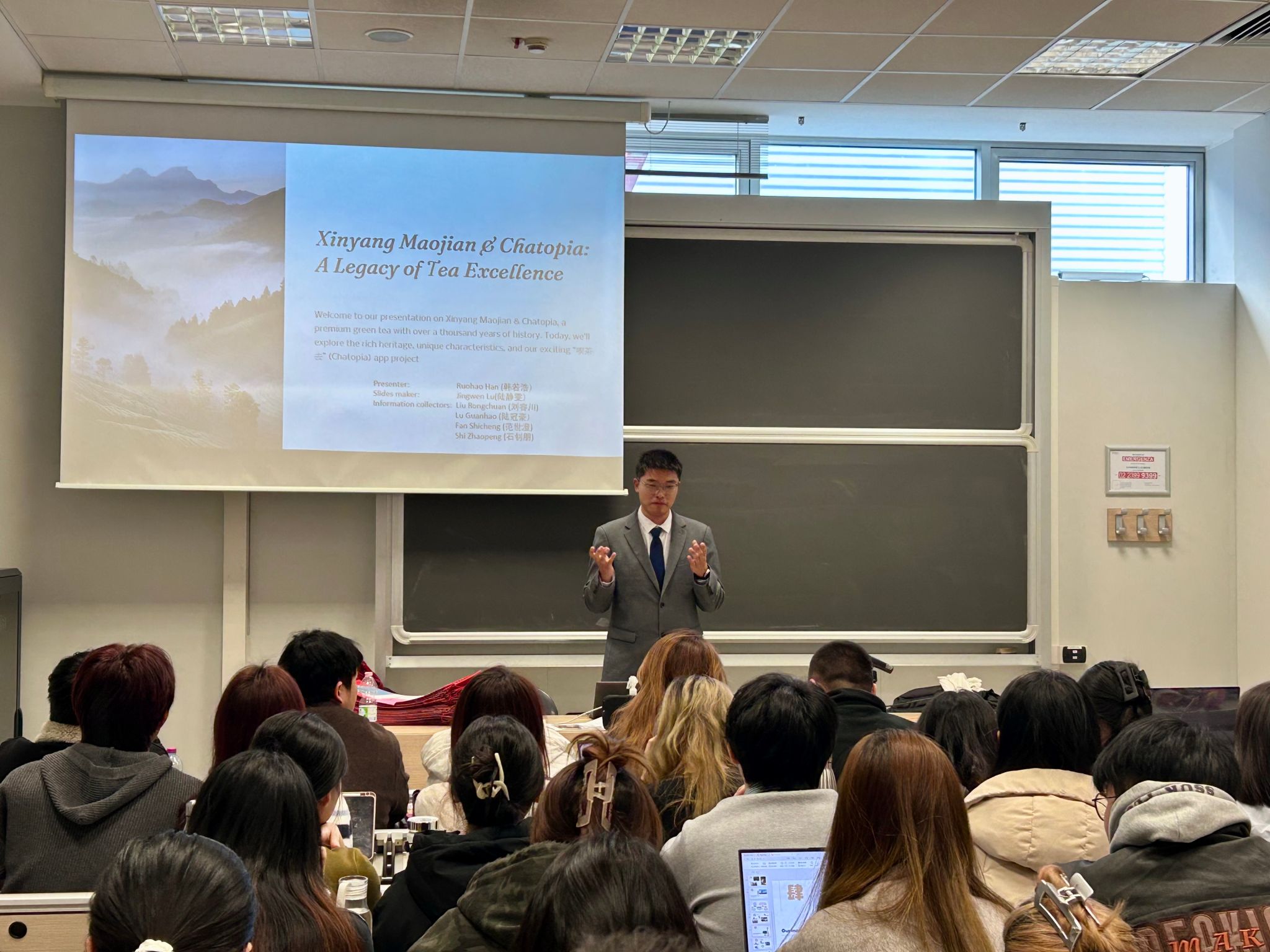
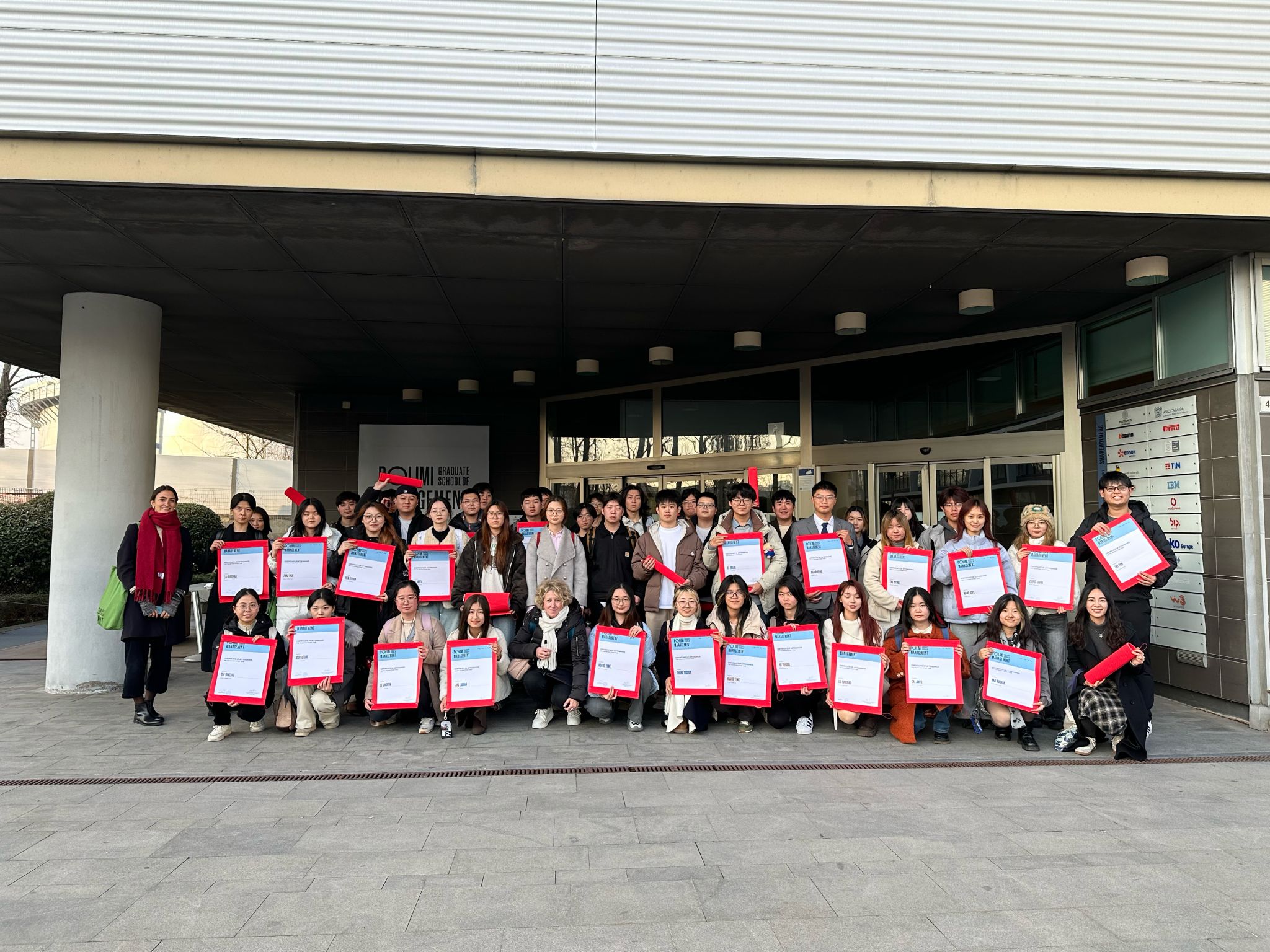
Since its establishment, the Department of Economics has been guided by the vision of "Integrating East and West, Moving Forward Together," aiming to cultivate economic management and leadership talents with a strong sense of responsibility. The department is committed to promoting social innovation and sustainable development, serving the nation's opening-up and cooperation as well as its economic and social progress. As one of the key programs within the Department of Economics, the International Economics and Trade major focuses on nurturing innovative leaders in economics and trade who possess solid professional competence, systematic analytical skills, cross-cultural capabilities, and a high sense of social responsibility. This reflects the university's international talent cultivation system and its interdisciplinary innovative talent training model.
The Milan study visit has further strengthened the international exchange and cooperation between Shenzhen MSU-BIT University and the Graduate School of Management at Politecnico di Milano in areas such as talent cultivation and scientific research, laying a solid foundation for deeper collaboration in the future. This visit also provided Shenzhen MSU-BIT students with a valuable opportunity to connect with cutting-edge academic and business practices globally. While broadening their international perspectives, the students significantly enhanced their professional competencies.
Looking ahead, it is hoped that they will fully utilize the knowledge and experience gained during this study visit in their future studies and careers. May they shine brightly in the field of international economics and trade, contributing their efforts to advancing global economic exchange and cooperation.




